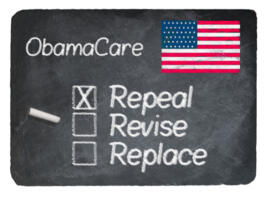Often You Don't Need a Doctor
A Commentary By Froma Harrop
You want a routine checkup. Or your throat is sore. It's probably nothing, but you're concerned. Do you need a full-fledged MD with all those certificates and perhaps a God complex?
Even if you want to see a physician, there's a shortage of family doctors these days. And it will only get worse as the Affordable Care Act (Obamacare) brings health coverage to 30 million more Americans. If you do have a primary care doctor, it may be hard to get an appointment.
A nurse practitioner may be in your future -- if he or she is not already in your present. This is a kind of super nurse, who's gone through four years of nursing school plus at least two more years of training in diagnosing and treating disease. Nurse practitioners may specialize in women's health, pediatrics or cardiac care.
"A lot of people view them as a pretty obvious way to help deal with the number of people expected to get insurance," Joanne Spetz, professor at the Institute for Health Policy Studies at the University of California, San Francisco, told me.
But the extent to which they can fill the gaps depends on where you live. States regulate health care, so the latitude given nurse practitioners varies widely.
In Missouri, for example, nurse practitioners may not see patients unless a physician is under the same roof. In New Mexico, by contrast, they don't have to work with a physician at all. In some states, they are restricted from prescribing narcotics. In others, they may prescribe certain kinds of narcotics and not others.
Western states tend to give nurse practitioners the greatest autonomy. Perhaps it's the libertarian spirit, or perhaps their vast rural areas, where doctors are few and far between. Colorado is considered "the cradle of nurse practitioner practice," according to Spetz.
A personal note: I went to a superb nurse practitioner for years, seeing the doctor she worked with only at parties. When I had a complaint she considered beyond her expertise, out came her pad and the name of a specialist to call.
Her accessibility was a big plus. She had time to shoot the breeze about my every little ache and whether running is bad for the knees.
Health economists see primary care providers as key to curbing medical costs. Americans overuse expensive specialists. For example, they run off to gastroenterologists and have endoscopes shoved down their throats when their problem is simple heartburn. Primary care providers could have saved these patients money, discomfort and anxiety by prescribing Tums as a first step.
"They know what they know, and they know what they don't know," Spetz said. "If a complicated diabetes situation is going on, they will send the patient to an endocrinologist."
We're talking money here, hence some heavy turf battles. The American Medical Association worries about nurses taking business from its doctor-members and lobbies in state capitals against giving nurse practitioners more independence. The AMA argues that patients' health may be jeopardized if doctors don't monitor nurse practitioners.
Obamacare provides some money for training nurse practitioners but sidesteps the matter of what role they might play. Early in the deliberations, there was reportedly talk of requiring states to give them more independence in return for Medicaid money. The AMA is said to have stopped that line of inquiry.
Cutting health care costs -- and making health care services more convenient for consumers -- demands moving basic medical services away from hospitals and, in many cases, doctors' offices. Sometimes we need a doctor; sometimes we don't. A well trained nurse practitioner can help point us in the right direction.
COPYRIGHT 2013 THE PROVIDENCE JOURNAL CO.
DISTRIBUTED BY CREATORS.COM
See Other Political Commentary.
See Other Commentaries by Froma Harrop.
Views expressed in this column are those of the author, not those of Rasmussen Reports. Comments about this content should be directed to the author or syndicate.
Rasmussen Reports is a media company specializing in the collection, publication and distribution of public opinion information.
We conduct public opinion polls on a variety of topics to inform our audience on events in the news and other topics of interest. To ensure editorial control and independence, we pay for the polls ourselves and generate revenue through the sale of subscriptions, sponsorships, and advertising. Nightly polling on politics, business and lifestyle topics provides the content to update the Rasmussen Reports web site many times each day. If it's in the news, it's in our polls. Additionally, the data drives a daily update newsletter and various media outlets across the country.
Some information, including the Rasmussen Reports daily Presidential Tracking Poll and commentaries are available for free to the general public. Subscriptions are available for $4.95 a month or 34.95 a year that provide subscribers with exclusive access to more than 20 stories per week on upcoming elections, consumer confidence, and issues that affect us all. For those who are really into the numbers, Platinum Members can review demographic crosstabs and a full history of our data.
To learn more about our methodology, click here.



